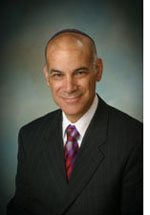|
By Rabbi Leonard Rosenthal
 SAN DIEGO—One of the classes I taught during my week as Camp Ramah's Rabbi in Residence was on Judaism's position on tattooing and body piercing. While dispelling the popular myth that someone with a tattoo cannot be buried in a Jewish cemetery (sorry, parents!), I affirmed that Jewish law and tradition forbid tattooing. SAN DIEGO—One of the classes I taught during my week as Camp Ramah's Rabbi in Residence was on Judaism's position on tattooing and body piercing. While dispelling the popular myth that someone with a tattoo cannot be buried in a Jewish cemetery (sorry, parents!), I affirmed that Jewish law and tradition forbid tattooing.
One of the Torah's primary references to body piercing appears in this week's parasha, R'eih. If a Hebrew slave chose to remain the property of his master after his time of servitude, "...you shall take an awl and put it through his ear into the door, and he shall become your slave in perpetuity." (Deut. 15:17) Ear piercing in this context has a negative connotation: it indicates an Israelite's rejection of freedom in favor of servitude.
However, when it comes to body piercing for decorative purposes, the Torah and Talmud are much more accepting. We know that the Israelites wore earrings because these were contributed toward the building of the Golden Calf. (Ex. 32:2-3) The Talmud explicitly allows women and men to wear jewelry or other ornamentation in pierced ears. (Mishna, Shabbat 6:5-7, Gemara, Shabbat 11b)
I asked my campers how Camp Ramah feels about body piercing. They told me that Camp Ramah permits staff members to have pierced ears but any other type of body piercing (i.e., nose and navel) may not be publicly displayed.
|
|
I then asked them what was the difference between pierced ears, on one hand, and pierced eyebrows, lips, tongue, nose, navel, etc., on the other.
From a physiological point of view, there is no difference. The difference is one of tzniyut, modesty. While pierced ears (for women and men) are largely accepted today as appropriately decorative, other body piercings are unusual and call inappropriate attention to one's body. Piercings in unusual places cause others to focus on those parts of the body rather than on the person in front of them.
In a society which glorifies certain body types and denigrates others, camp should be a place where a camper's tzelem Elokim, spark of divinity, is celebrated and not their "looks." At camp attention is focused on internal rather than external beauty.
Tzniyut, modesty, is an important Jewish value, one that is often undervalued. One of the ways the Camp Ramah staff members model the value of tzniyut is through their public display of only ear piercings and by female staff wearing one piece swim suits.
While camp emphasizes the importance of a healthy body (through sports and appropriate diet) it also emphasizes the importance of a healthy neshama (soul.) Hopefully, this summer the campers will learn that tzniyut is one of the ways in which Jews feed their souls.
|
|

